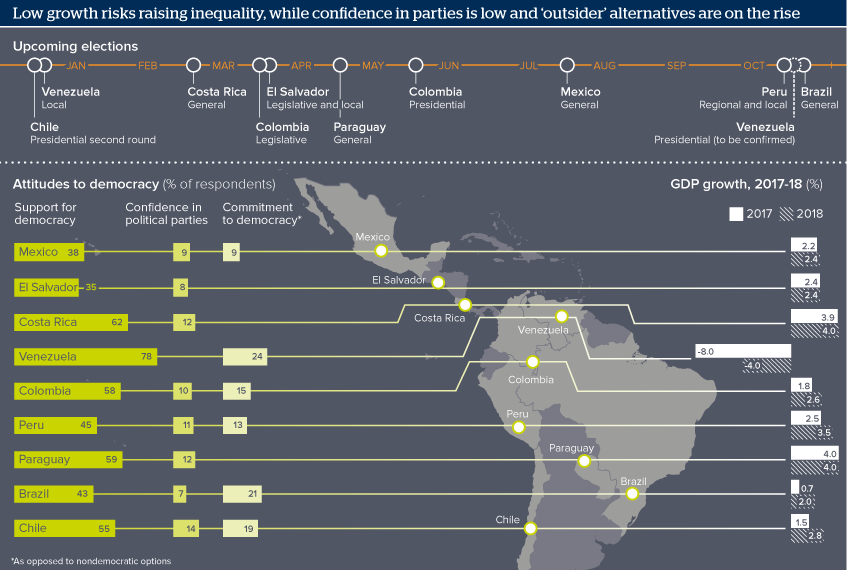Latin American elections are unusually unpredictable
Voter dissatisfaction with the economy and widespread corruption will be key factors in many elections
Source: ECLAC; Latinobarometro; Pew Research Center
Outlook
Dissatisfaction with the performance of democratic governments has risen across the region, although the preference for democracy as a system is largely unchallenged. However, willingness to consider non-democratic alternatives has risen -- in Mexico, only 9% claim to be committed to democracy and Colombia (15%) and Peru (13%) look only slightly better.
Presidential elections in the region’s two largest economies -- Brazil and Mexico -- look especially uncertain in 2018. Given that there is no second round in Mexico, the new president may well win with only around one-third of the popular vote.
In a context of grave economic crisis, the Venezuelan presidential elections may even be delayed, yet President Nicolas Maduro, perhaps counterintuitively, seems to be strengthening his position
Impacts
- The outcome of Chile’s second round run-off on December 17 is still unpredictable.
- The Brazilian election is highly polarised; any winner will face widespread rejection and a difficult congressional make-up.
- The fallout from the Petrobras/Odebrecht corruption scandal will be felt in the Colombian elections.
- Paraguay’s Colorado Party looks likely to secure re-election, owing to its dominant position and control over patronage.
